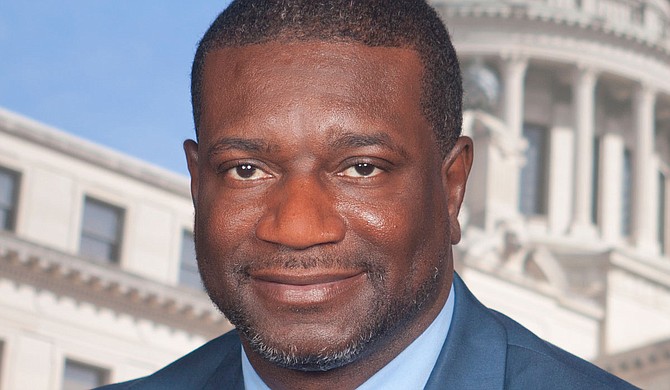Sen. Juan Barnett, D-Hedeilburg, principally authored Senate Bill 2795. Gov. Tate Reeves signed the bill into law yesterday, after a tumultuous round of compromises in the Mississippi Legislature left it without what criminal-justice advocacy groups call needed reforms for habitual-offender laws. Photo courtesy Mississippi State Senate
Thousands of incarcerated Mississippians will soon become eligible for a parole hearing after Gov. Tate Reeves signed the “Mississippi Earned Parole Eligibility Act” into law this Thursday.
Principally authored by Sen. Juan Barnett, D-Heidelberg, the law previously known as Senate Bill 2975 expands parole eligibility to varying degrees depending on the type of crime. Starting in July, violent offenders will be eligible for parole after serving 50% to 60% of time served or after 20 to 25 years, whichever is less. Parole for non-violent offenders previously required 25% of time served for parole eligibility, but now under the new law the 25% or 10 years served will suffice, whichever is less.
Uncertainty loomed over the bill even after legislators passed it to the governor’s desk as various law enforcement groups voiced their disapproval to Reeves, who vetoed similar legislation last year.
“My #1 focus in these troubling times will always be to protect MS communities,” Reeves tweeted yesterday. “That’s why I vetoed legislation last year that went too far.”
The new law specifically does not include reforms for habitual offenders, bypassing some Mississippians who are still languishing with life sentences for non-violent offenses.
Foregoing habitual offender reform was a selling point for Reeves, who praised its lack of inclusion in the law. “Maybe best of all, habitual offenders are not included in this bill,” he said.
For proponents of parole reform, the signing comes as a welcome change to Mississippi, which has the second highest incarceration rate per capita in the entire country.
FWD.us Mississippi State Director Alesha Judkins praised the reforms in a statement, calling Thursday a “big day for Mississippians across the state, particularly for people and families who sadly, know firsthand just how devastating the state’s incarceration crisis is, and who have, alongside other advocates, pushed to ensure meaningful opportunities for release for their loved ones.”
FWD.us had previously praised SB 2795 as a welcome start to reform, but noted that the bill did not go far enough to help habitual offenders.
“SB 2795 came too late to save the dozens of people who were not eligible for parole and died in prison since legislators started working on these reforms,” Judkins said in an April 1 statement. “We are also devastated that, for the second year in a row, legislators failed to pass reforms to the state’s harmful habitual sentencing laws.”
“This is just one important step,” Judkins said yesterday. “We stand ready to continue working with legislators and state leadership on more common-sense solutions, like changing the state’s harsh habitual sentencing laws, further safely reducing Mississippi’s prison population, and strengthening families and communities across our state.”
Empower Mississippi applauded the move as being “smart on crime, soft on taxpayers.”
“Legislative leadership and stakeholders from across the criminal justice system worked very hard this year to craft meaningful parole reform that puts public safety first while providing opportunity for rehabilitated individuals to earn redemption,” Empower Mississippi President Russ Latino said.
Email Reporting Fellow Julian Mills at [email protected].



Comments
Use the comment form below to begin a discussion about this content.
comments powered by Disqus